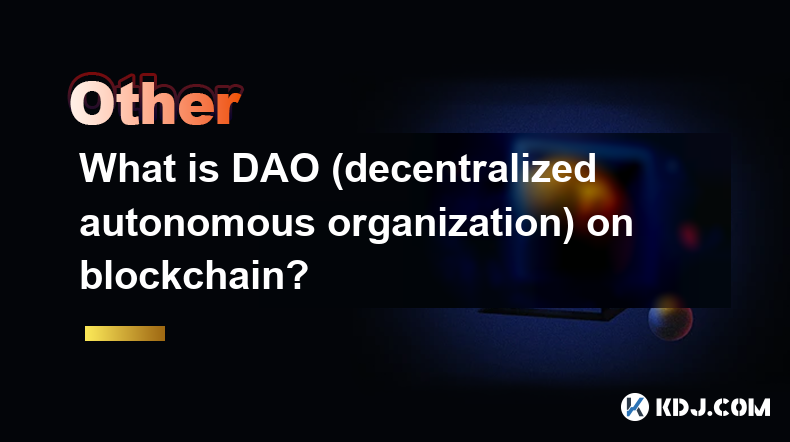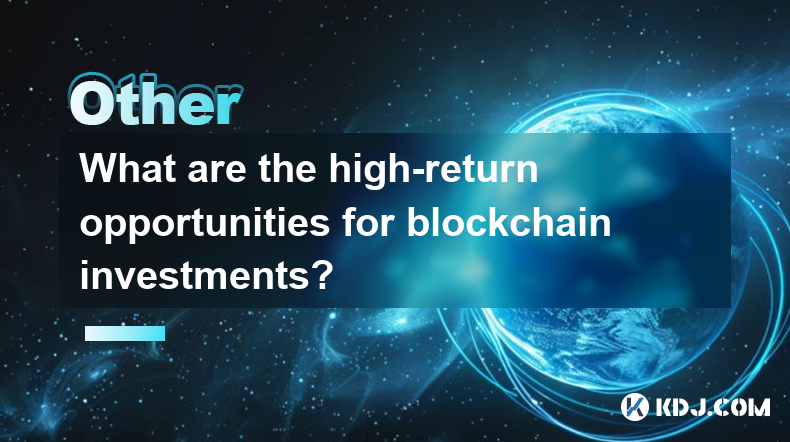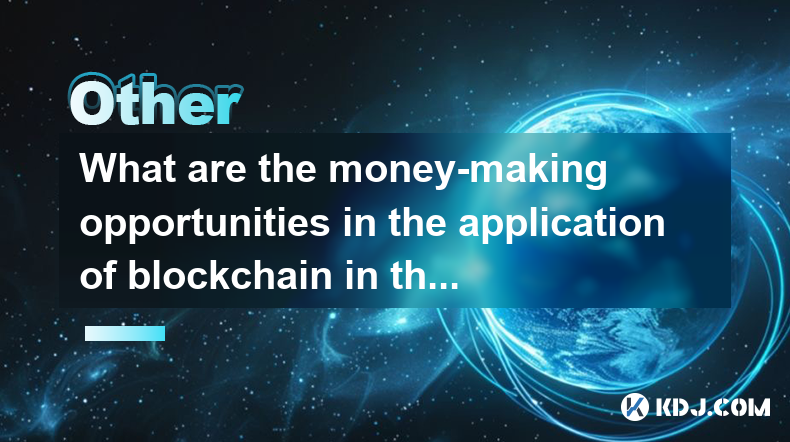-
 Bitcoin
Bitcoin $83,645.2925
2.13% -
 Ethereum
Ethereum $1,810.3926
2.44% -
 Tether USDt
Tether USDt $0.9997
-0.01% -
 XRP
XRP $2.1625
6.88% -
 BNB
BNB $597.0728
1.93% -
 Solana
Solana $120.3405
5.84% -
 USDC
USDC $1.0000
-0.01% -
 Dogecoin
Dogecoin $0.1697
5.76% -
 Cardano
Cardano $0.6612
4.89% -
 TRON
TRON $0.2366
-0.18% -
 Chainlink
Chainlink $12.9367
4.36% -
 UNUS SED LEO
UNUS SED LEO $8.9186
-4.81% -
 Toncoin
Toncoin $3.2881
-3.62% -
 Stellar
Stellar $0.2568
1.07% -
 Avalanche
Avalanche $18.2513
3.22% -
 Sui
Sui $2.2464
5.05% -
 Shiba Inu
Shiba Inu $0.0...01235
3.20% -
 Hedera
Hedera $0.1624
3.07% -
 Litecoin
Litecoin $83.6396
2.15% -
 Polkadot
Polkadot $3.9903
0.78% -
 Bitcoin Cash
Bitcoin Cash $303.0186
2.29% -
 MANTRA
MANTRA $6.2191
-0.79% -
 Bitget Token
Bitget Token $4.5070
0.81% -
 Dai
Dai $1.0001
0.01% -
 Ethena USDe
Ethena USDe $0.9991
-0.05% -
 Pi
Pi $0.7573
46.01% -
 Monero
Monero $217.7441
1.11% -
 Hyperliquid
Hyperliquid $11.9838
7.25% -
 Uniswap
Uniswap $5.9118
4.14% -
 OKB
OKB $51.3601
9.71%
What is DAO (decentralized autonomous organization) on blockchain?
DAOs, using blockchain and smart contracts, offer decentralized, transparent governance via token-based voting, but face challenges like legal ambiguity, security risks, and scalability issues.
Mar 21, 2025 at 01:00 am

Key Points:
- DAOs operate on blockchain technology, enabling transparency and immutability.
- Members participate through tokens, granting voting rights and influence.
- Smart contracts automate decision-making and treasury management.
- DAOs lack centralized control, fostering community governance.
- Challenges include legal ambiguity, security vulnerabilities, and scalability issues.
What is DAO (Decentralized Autonomous Organization) on Blockchain?
A Decentralized Autonomous Organization (DAO) is a community-led entity governed by rules encoded on a blockchain. Unlike traditional organizations with hierarchical structures, DAOs operate autonomously based on pre-defined smart contracts. These contracts dictate the organization's rules, operations, and treasury management. Membership is often represented through tokens, allowing members to participate in decision-making processes through voting. This decentralized nature aims to eliminate single points of failure and enhance transparency.
The core functionality of a DAO relies heavily on smart contracts. These self-executing contracts automate various aspects of the DAO, such as treasury management, proposal creation, and voting processes. This automation minimizes the need for intermediaries, promoting efficiency and reducing the risk of human error or manipulation. The blockchain's immutable ledger ensures that all transactions and governance decisions are transparent and permanently recorded.
Participation in a DAO usually involves acquiring governance tokens. These tokens grant members voting rights proportional to their token holdings. This token-based governance system allows the community to collectively decide on the DAO's future direction, proposals, and resource allocation. The weight of each vote is directly tied to the number of tokens held, creating a system of proportional representation within the DAO. This ensures that larger stakeholders have a greater influence on decisions.
One key advantage of DAOs is their resistance to censorship and single points of failure. Traditional organizations are vulnerable to control by individuals or groups. DAOs, however, are resistant to such control because decision-making is distributed amongst token holders. This inherent decentralization enhances the resilience of the organization and makes it less susceptible to manipulation or external pressures.
However, DAOs also present unique challenges. Legal ambiguity surrounding DAOs remains a significant hurdle. The lack of clear legal frameworks makes it difficult to determine the legal status and liability of DAOs in different jurisdictions. Furthermore, the security of smart contracts is crucial. Bugs or vulnerabilities in the smart contracts can be exploited, leading to financial losses or the compromise of the entire DAO.
Scalability also poses a challenge. As DAOs grow larger, the processing of transactions and governance proposals can become slower and more expensive. This can hinder the efficiency and responsiveness of the organization. Finding solutions to improve scalability while maintaining decentralization is a continuous area of development in the DAO ecosystem.
How are decisions made in a DAO?
Decisions within a DAO are typically made through a voting mechanism. This process is often facilitated by smart contracts, automating the voting process and ensuring transparency. Members propose changes or initiatives, which are then put to a vote. The outcome of the vote, determined by the weighted votes of token holders, dictates whether the proposal is accepted or rejected.
- Proposal Submission: Members submit proposals outlining the desired changes or actions.
- Voting Period: A designated period is set aside for members to cast their votes.
- Vote Tallying: Smart contracts automatically tally the votes based on token holdings.
- Outcome Execution: If the proposal passes the predefined threshold, the smart contract executes the necessary actions.
What are the benefits of using a DAO?
DAOs offer several potential advantages over traditional organizations. The transparency and immutability provided by the blockchain create a more accountable and trustworthy system. The automation of processes through smart contracts increases efficiency and reduces the risk of human error. Furthermore, the decentralized nature of DAOs fosters greater community involvement and reduces the risk of centralized control.
- Transparency: All transactions and governance decisions are publicly recorded on the blockchain.
- Automation: Smart contracts automate many processes, increasing efficiency.
- Community Governance: Members collectively govern the organization through voting.
- Resilience: Decentralization makes DAOs resistant to censorship and single points of failure.
What are the risks associated with DAOs?
Despite the benefits, DAOs also present certain risks. Security vulnerabilities in smart contracts can lead to financial losses or the compromise of the DAO's funds. Legal uncertainty surrounding DAOs creates ambiguity regarding their legal status and liability. Scalability issues can arise as DAOs grow larger, potentially hindering efficiency.
Common Questions:
Q: What is the difference between a DAO and a traditional company?
A: A traditional company has a centralized structure with a board of directors and shareholders. DAOs are decentralized, with decisions made by token holders through on-chain voting governed by smart contracts.
Q: How can I join a DAO?
A: The process varies depending on the specific DAO. Typically, it involves acquiring the DAO's governance tokens, which can be purchased on cryptocurrency exchanges or through other means specified by the DAO.
Q: Are DAOs legal?
A: The legal status of DAOs is still evolving and varies by jurisdiction. There is no universally accepted legal framework for DAOs.
Q: What are some examples of successful DAOs?
A: Several DAOs have gained traction, including those focused on DeFi, NFTs, and community governance, although the success of any DAO is highly dependent on its governance model and community engagement.
Q: How secure are DAOs?
A: DAO security is highly dependent on the quality of the smart contracts governing it. Well-audited and rigorously tested smart contracts are crucial for minimizing the risk of exploits. However, no system is perfectly secure, and vulnerabilities can still exist.
Disclaimer:info@kdj.com
The information provided is not trading advice. kdj.com does not assume any responsibility for any investments made based on the information provided in this article. Cryptocurrencies are highly volatile and it is highly recommended that you invest with caution after thorough research!
If you believe that the content used on this website infringes your copyright, please contact us immediately (info@kdj.com) and we will delete it promptly.
- We Become One: The Power Of The Shared Musical Experience
- 2025-04-05 19:20:12
- VanEck Has Filed to Launch the First BNB (Binance Coin) ETF in the US
- 2025-04-05 19:20:12
- The Best Crypto to Buy in April 2024: Qubetics, Theta, Render, and Hedera
- 2025-04-05 19:15:12
- Dogecoin (DOGE) and Pepe (PEPE) Have Long Been Fan Favorites
- 2025-04-05 19:15:12
- Russia Is Moving Closer to Selling Bitcoin Confiscated During Criminal Investigations as Officials Work to Create a Legal Structure for Handling Such Digital Assets
- 2025-04-05 19:10:12
- Solana (SOL) ETF Futures Products Struggle to Attract Investors, Bitcoin (BTC) Dominates the Market
- 2025-04-05 19:10:12
Related knowledge

Is the ranking of Chinese blockchain apps real and reliable?
Apr 04,2025 at 09:01pm
The ranking of Chinese blockchain apps has become a topic of interest for many in the cryptocurrency community, as it provides insights into the popularity and adoption of blockchain technology within China. However, the reliability and authenticity of these rankings are often questioned. This article aims to delve into the factors that influence these ...

What are the future development trends of blockchain game development?
Apr 03,2025 at 05:00am
Blockchain technology has revolutionized various industries, and gaming is no exception. As we look to the future, several trends are set to shape the development of blockchain games. These trends not only promise to enhance the gaming experience but also to integrate blockchain technology more seamlessly into the gaming ecosystem. Let's explore these t...

What are the high-return opportunities for blockchain investments?
Apr 05,2025 at 02:35pm
Blockchain technology has revolutionized the financial world, offering numerous high-return investment opportunities. These opportunities span various sectors within the cryptocurrency ecosystem, including cryptocurrencies, decentralized finance (DeFi), non-fungible tokens (NFTs), and blockchain startups. Each of these areas presents unique risks and re...

What are the maintenance costs of blockchain system development?
Apr 03,2025 at 06:07pm
The maintenance costs of blockchain system development are multifaceted and depend on various factors. These costs can include technical maintenance, security updates, infrastructure expenses, and personnel costs. Understanding these elements is crucial for anyone planning to develop or maintain a blockchain system. Technical MaintenanceTechnical mainte...

What are the money-making models of blockchain games?
Apr 04,2025 at 02:00pm
Blockchain games have emerged as a revolutionary way for players to earn real money while enjoying their favorite pastime. These games leverage the power of blockchain technology to create unique money-making models that benefit both the players and the developers. In this article, we will explore the various money-making models of blockchain games and ...

What are the money-making opportunities in the application of blockchain in the medical industry?
Apr 03,2025 at 03:35am
The integration of blockchain technology into the medical industry presents a myriad of money-making opportunities that can revolutionize healthcare systems. Blockchain's inherent characteristics, such as transparency, security, and immutability, make it an ideal solution for various medical applications. By leveraging blockchain, companies can develop ...

Is the ranking of Chinese blockchain apps real and reliable?
Apr 04,2025 at 09:01pm
The ranking of Chinese blockchain apps has become a topic of interest for many in the cryptocurrency community, as it provides insights into the popularity and adoption of blockchain technology within China. However, the reliability and authenticity of these rankings are often questioned. This article aims to delve into the factors that influence these ...

What are the future development trends of blockchain game development?
Apr 03,2025 at 05:00am
Blockchain technology has revolutionized various industries, and gaming is no exception. As we look to the future, several trends are set to shape the development of blockchain games. These trends not only promise to enhance the gaming experience but also to integrate blockchain technology more seamlessly into the gaming ecosystem. Let's explore these t...

What are the high-return opportunities for blockchain investments?
Apr 05,2025 at 02:35pm
Blockchain technology has revolutionized the financial world, offering numerous high-return investment opportunities. These opportunities span various sectors within the cryptocurrency ecosystem, including cryptocurrencies, decentralized finance (DeFi), non-fungible tokens (NFTs), and blockchain startups. Each of these areas presents unique risks and re...

What are the maintenance costs of blockchain system development?
Apr 03,2025 at 06:07pm
The maintenance costs of blockchain system development are multifaceted and depend on various factors. These costs can include technical maintenance, security updates, infrastructure expenses, and personnel costs. Understanding these elements is crucial for anyone planning to develop or maintain a blockchain system. Technical MaintenanceTechnical mainte...

What are the money-making models of blockchain games?
Apr 04,2025 at 02:00pm
Blockchain games have emerged as a revolutionary way for players to earn real money while enjoying their favorite pastime. These games leverage the power of blockchain technology to create unique money-making models that benefit both the players and the developers. In this article, we will explore the various money-making models of blockchain games and ...

What are the money-making opportunities in the application of blockchain in the medical industry?
Apr 03,2025 at 03:35am
The integration of blockchain technology into the medical industry presents a myriad of money-making opportunities that can revolutionize healthcare systems. Blockchain's inherent characteristics, such as transparency, security, and immutability, make it an ideal solution for various medical applications. By leveraging blockchain, companies can develop ...
See all articles



















































































